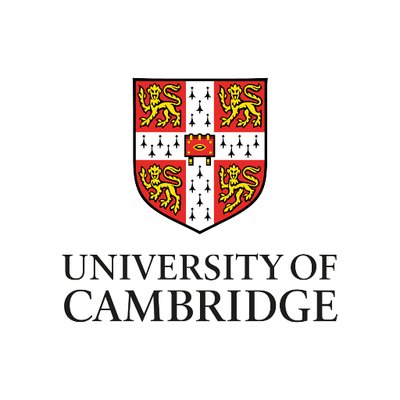University of Cambridge: Early-career researchers win major European grants
Nine Cambridge researchers have risen to the top of over 4,000 proposals to secure prestigious European Research Council (ERC) Starting Grants, the most achieved by any UK institution.
The awards enable researchers to build their own teams and conduct world-leading research across all disciplines. In total, the grants will create more than 2,000 jobs for postdoctoral fellows, PhD students and other staff at host institutions.
Cambridge’s recipients work in a range of faculties and departments including physics, mathematics, plant sciences, music and history. They are among 397 laureates who will be leading projects at universities and research centres in 22 EU and associated countries. This year, the UK has received grants for 46 projects, Germany 72, France 53, and the Netherlands 44.
Cambridge’s grant recipients for 2021 are:
Giuliana Di Martino for Plasmon-Enhanced FerroElectric Discovery
Sebastian Eves-van den Akker for Effector biogenesis: an unexplored, and yet critically important, part of plant-nematode interactions
Jake Harris for TransPlant Memory: Synthetic Priming of Transcriptional Memory
Ailsa Keating for SingSymp Singularities and symplectic mapping class groups
Peter McMurray for Ottoman Auralities and the Eastern Mediterranean: Sound, Media and Power, 1789-1922
Teresa Rayon for Molecular and metabolic pathways controlling developmental timing
Caroline Rusterholz for Race and Sexual and Reproductive Health Charities in postwar Britain (1950s-2020s)
Robert-Jan Slager for Multi-gap topological physics: from a new geometric perspective to materials
Alice Thorneywork for The noise is the signal: exploring physico-chemical fluctuations with multiscale experimental models
These are the first ERC starting grants to be awarded under the EU’s new R&I programme, Horizon Europe. On average, the grants are worth €1.5 million.
Professor Maria Leptin, President of the European Research Council, said:
“Letting young talent thrive in Europe and go after their most innovative ideas – this is the best investment in our future, not least with the ever-growing competition globally.
“I am thrilled to see these new ERC Starting Grant winners ready to cut new ground and set up their own teams… We must continue to make sure Europe remains a scientific powerhouse.”
Researcher profile
Among Cambridge’s recipients this year is Dr Sebastian Eves-van den Akker, one of two success stories from the Department of Plant Sciences.
Dr Sebastian Eves-van den Akker
Dr Eves-van den Akker’s project addresses a major and growing constraint on global food security: plant-parasitic nematode worms. These microscopic worms are often overlooked but cause huge damage to crops worldwide.
The vision of the E-biogenesis team created by the ERC grant centres on the ability of nematodes to produce molecules that cause disease: so called “effectors”. Rather than blocking individual effectors, which is insufficient, the team proposes that we should attack their biogenesis machinery, which Eves-van den Akker describes as their ‘Achilles heel’.
He said: “Effector biogenesis has not been studied for 30 years because the system was intractable. With our recent development in functional genetics, the University of Cambridge is now well placed to dissect this strategically important knowledge gap.
“We hope that this research will highlight a multiplicity of attractive targets for the biotechnological control of globally important plant pests.
“Receiving an ERC starting grant is the best possible opening to an academic career. It gives us the opportunity for high-risk, high-reward, research that really no other funding agency would entertain.”
Researcher profile
Fellow grant recipient, Dr Giuliana Di Martino, from the Department of Materials Science and Metallurgy, will use her grant to support the transition to more sustainable computing.
Dr Giuliana Di Martino
Dr Di Martino’s research links the fields of low-energy nanoscale device engineering and plasmon-enhanced light-matter interactions by implementing optically-accessible devices. Her research group uses the ultra-concentration of light to develop innovative fast ways to study real-time movement of individual atoms that underpins this new generation of ultra-low energy memory nano-devices.
Dr Di Martino said: “We live in an information driven society, where we see proliferation of data centric technologies. Data complexity is growing explosively and data centres consume an increasing fraction of total world energy use.
“Neuromorphic systems, mimicking the brain nervous system, are proficient in cognitive and data-intensive tasks, providing high computing efficiencies and low power consumption. Ferroelectric memories could offer the required technology for both non-volatile memory and neuromorphic computing.
“This work will be a big advance in using light to show how ferroelectric materials behave when inside active devices. The strange physics of light interacting with matter on the nanoscale allows us to characterise these devices in real time, where their functioning depends on how the material behaves in a space just a few atoms across. This way, we can reveal the breakdown mechanisms upon cycling and open up new routes for device optimisation towards large-scale technology applications.”

